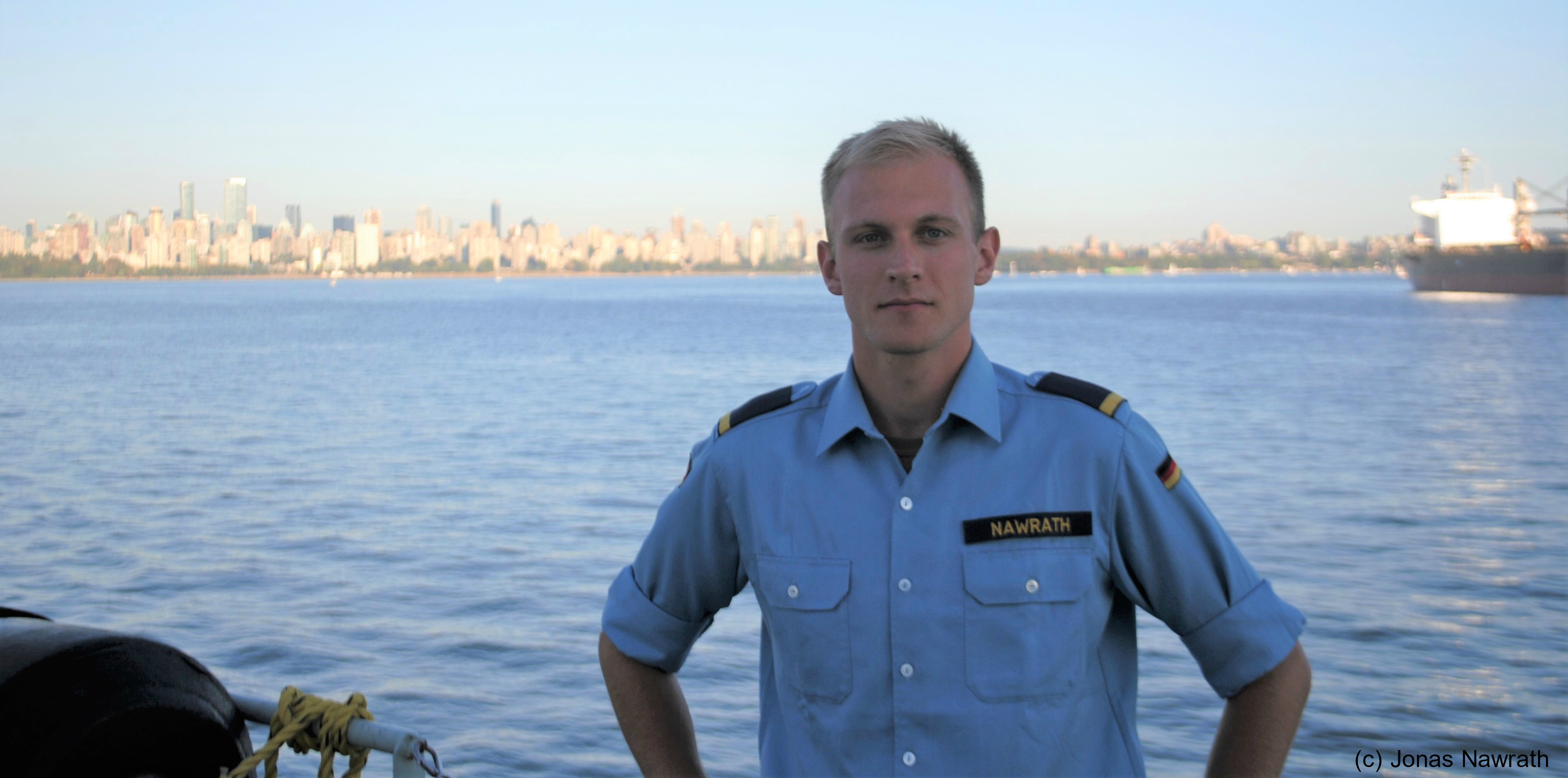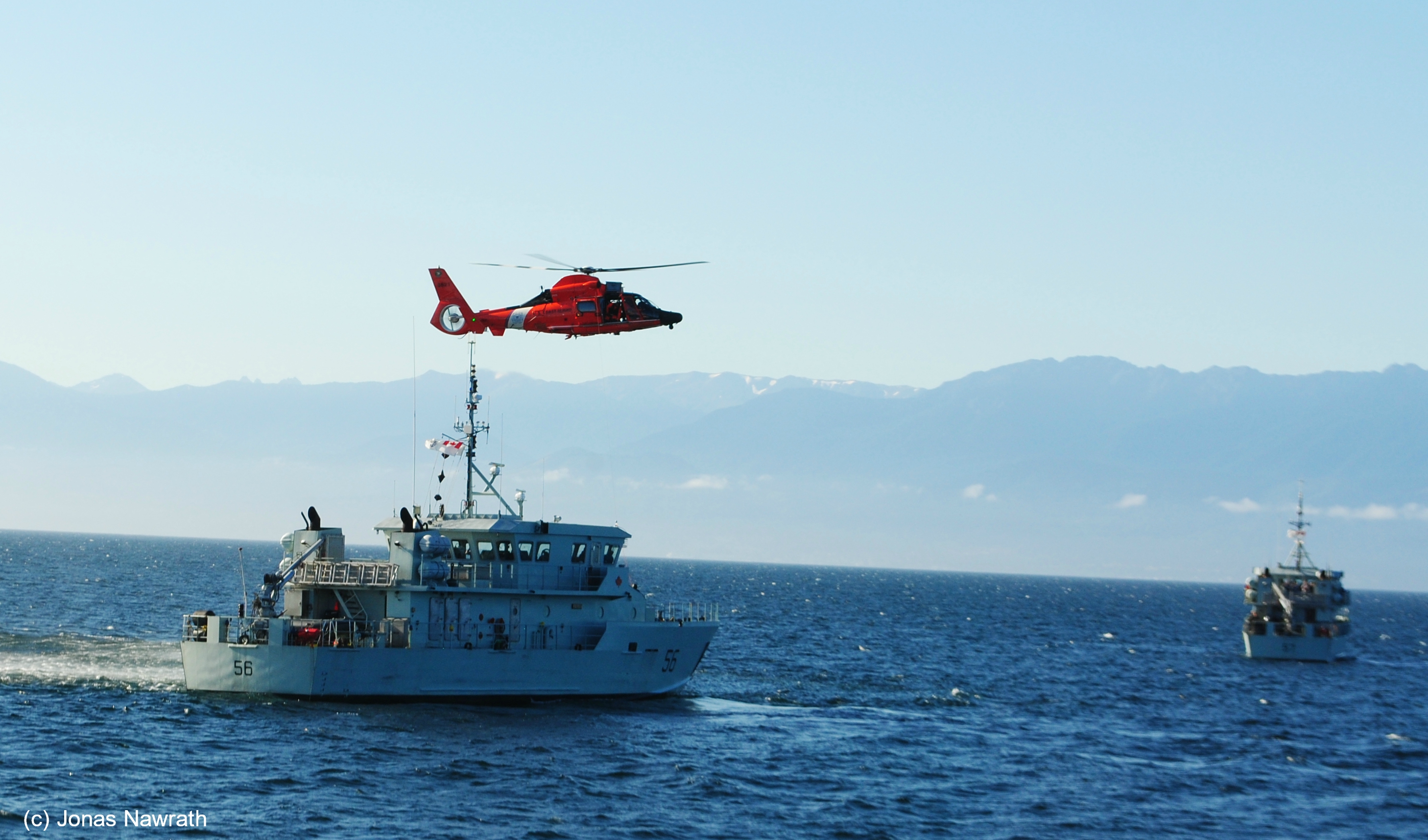
Thrown into the Pacific
This summer, I had the unique opportunity of completing a short, but intense internship with the Royal Canadian Navy at Canadian Forces Base Esquimalt on Vancouver Island prior to my semester abroad. But before going into more details about my experiences, I would like to introduce myself.
A German student on board the Royal Canadian Navy
I am Leutnant zur See Jonas Nawrath, a 22-year-old student and naval officer in the German Navy. I am currently based at Helmut-Schmidt-University in Hamburg majoring in political science, from where I will graduate with a bachelor’s degree at the beginning of 2018. For this year’s fall term, I was accepted as an international exchange student at Vancouver Island University in Nanaimo, British Columbia, and given the opportunity to join cadets and junior officers of the Royal Canadian Navy in their training at Canada’s Pacific Coast naval base. Since I have had a truly exciting and rewarding time there, I would like to share my experiences.

The internship was divided into three independent training weeks. The first week, I sailed together with three cadets from the Royal Military College and one instructor on board the Canadian Navy’s sail training vessel STV Goldcrest. During this sail, I could call to mind theoretical knowledge, which I learned in my first year at the German Naval Academy, and I could apply my navigational skills practically by planning our route through the Gulf Islands between Vancouver Island and the Canadian mainland. STV Goldcrest with its small crew provided a perfect learning environment for me: being thrown into the “deep end”, there was no way for me as foreign soldier on board to hide, and so I took charge the same way as the Canadian cadets. Doing so, I quickly learned the technical vocabulary and integrated into the team. I consider my first week on board STV Goldcrest as very helpful to seamlessly continue the nautical training in the following week.
I spent the second week of my internship on board the patrol craft training boat PCT Cougar, one of eight training vessels of the Orca class at Esquimalt. These ships are used to train the Royal Canadian Navy’s future bridge watch officers. It was an intense week, especially because the boat runs 24/7, which means you are on night watch every third night due to the crew’s rotating duty roster. Nevertheless this week was my personal highlight: almost jealous of the practical training on a real ship’s bridge, instead of training in a simulator, I learned a lot that is not written in any textbook. No scenario being equal to another in the narrow coastal waters, it was a completely new experience for me in terms of how to manage and coordinate your staff on bridge while simultaneously navigating the ship. Even though I only had the chance to sail with PCT Cougar for one week, I am sure that I will benefit from the time on board in the near future.

In my third and last week with the Royal Canadian Navy, I participated in a rescue swimmer course. This course trains mariners to act as rescue swimmers in the event a crew member falls overboard at sea. It was a physically demanding course, with a lot of running and swimming filling the time table. There were moments when I had to clench my teeth jumping off the ship at a height of ten meters into the Pacific. The swim session at night in the bay of Esquimalt will stick in my memory, as it was quite an adventure getting dropped off a kilometer off the coast in darkness.
I had exciting and rewarding three weeks working together with the Royal Canadian Navy. Everyone I met was open-minded, always willing to answer my questions and help my progress. I owe special thanks to Oberstleutnant i.G. Hülshoff, the German Defence Attaché in Canada, who made this great internship happen.